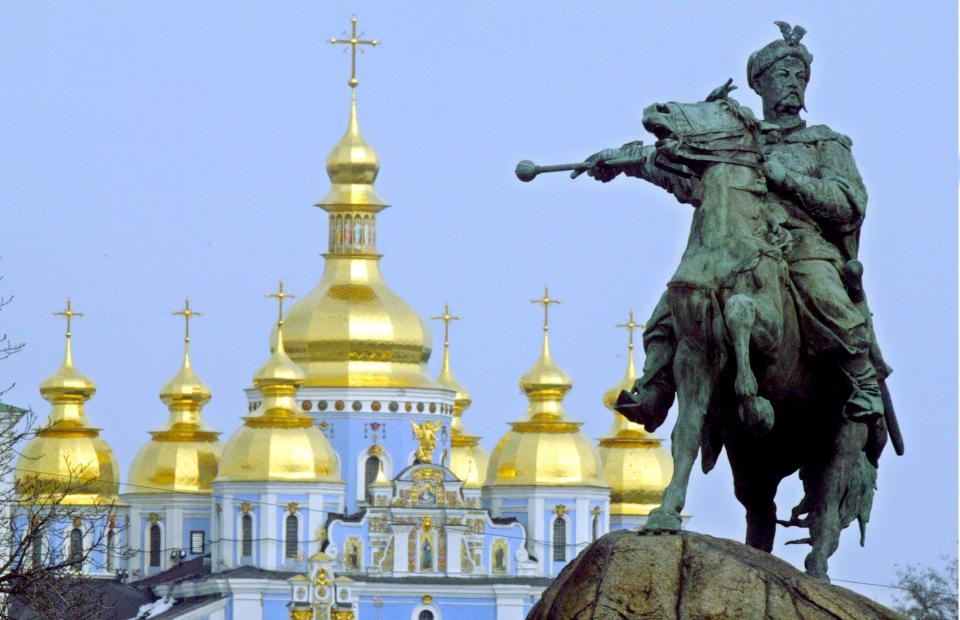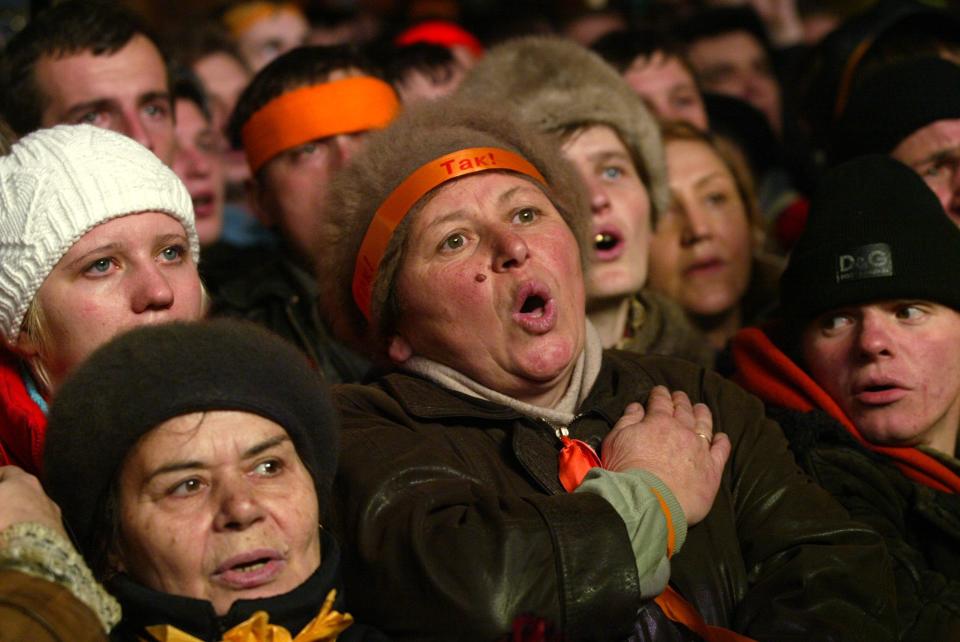Opinion: Why we say 'Kyiv,' not 'Kiev': The political history behind Ukraine's capital
Have you noticed that TV anchors, diplomats and – hold onto your blue and yellow flags – even American politicians on both sides of the aisle say "Kyiv" (pronounced "KEEV") and not "Kiev" (KEE-ev)? In this day of deep divides on almost every topic, it's sobering to see such agreement when it comes to how we pronounce the name of Ukraine's capital city.
This isn't a "you like tomato, I like tomahto" situation. How to pronounce and spell Kyiv is not a matter of personal choice. It’s political, and it matters. By adopting "Kyiv" we're siding with Ukraine – the country known as the "breadbasket of Europe" – against Russia.
Even though I'm of Ukrainian descent, I have to admit I was in the dark about this change, so I did a little digging. Here’s what I've learned: In the early 1990s, Ukraine became an independent state from the crumbling USSR, and in 1995 the government decided to pronounce and spell its capital "Kyiv" as a way to further assert an identity a separate from Russia. ("Kiev" had long been associated with Russian domination of Ukraine.)
Andrii Smytsniuk, a Ukrainian language teacher at Cambridge University, explained to The Guardian that many Ukrainians use "Kyiv" to show respect for their identity and language. "When I meet someone new, I like to pronounce their name the way they want it pronounced in their language, which is why I think it's right to pronounce it 'Kyiv' as close to the Ukrainian as possible," he added.
I couldn't agree more in this instance, and really, across the board. Call people as they ask to be called.
Putin's other war: Russians like me are fleeing a totalitarian crackdown at home
Two disastrous scenarios: Will Putin turn the war in Ukraine into a nuclear crisis? We can't rule it out.
But it took a very long time for the rest of the world to catch up, which is why so many of us have been left wondering about which version is correct. Only a few years ago did most Western media outlets change their spelling, thanks to the "KyivNotKiev" online campaign. Airports around the globe followed suit with the name change, helping to cement Ukraine's autonomous identity and publicizing the new spelling.
So when in Kyiv or talking about Kyiv, do as the Kyivans do. (Yep, that’s what they’re called.)
While we're at it? Drop the 'the'
I was less behind the times when I realized a few years ago that many had dropped the "the" before Ukraine, but I didn’t really know why, and it’s a mistake I made for many years.
After gaining independence from Russia, the nation dropped the "the" and just called the country "Ukraine." Ukrainians today prefer to refer to their country simply as Ukraine. Need more persuasion? The Ukrainian constitution states definitively that the name of the country is Ukraine. Full stop.

It's like when Northern Rhodesia became independent from Britain in 1964. The country took on the name Zambia, so that's what we call it. Closer to home, in 1997 the people of Gay Head on Martha’s Vineyard voted to rename the town Aquinnah, restoring the area's original Native American name in a strong nod to the local Wampanoag tribe.
The name Ukraine means "borderland," so many scholars say using "the" before the country's name diminishes it as an independent nation by describing it in relation to Russia. In short, it suggests a subordinate status. (I found it helpful to recall that we refer to one of New York City’s boroughs as "The Bronx" and not plain old "Bronx" because it’s a part of the overall city, not an independent entity. Yes, there are exceptions to this rule, but again why argue with how a people or nation self-identifies?)

In a different context, novelist Toni Morrison once explained that the debate about what to call people "is really about the power to be able to define. The definers want the power to name. And the defined are now taking that power away from them."
Clearly, language can be used to give a new dignity to those challenging authority and seeking their own identities. Not sure about that? Just ask the Kyivans.
Steven Petrow, a writer on civility and manners and a member of USA TODAY's Board of Contributors, is the author of five etiquette books, including "Stupid Things I Won't Do When I Get Old." Follow him on Twitter: @stevenpetrow
This article originally appeared on USA TODAY: Opinion: Kyiv vs Kiev: How we spell Ukraine's capital matters

